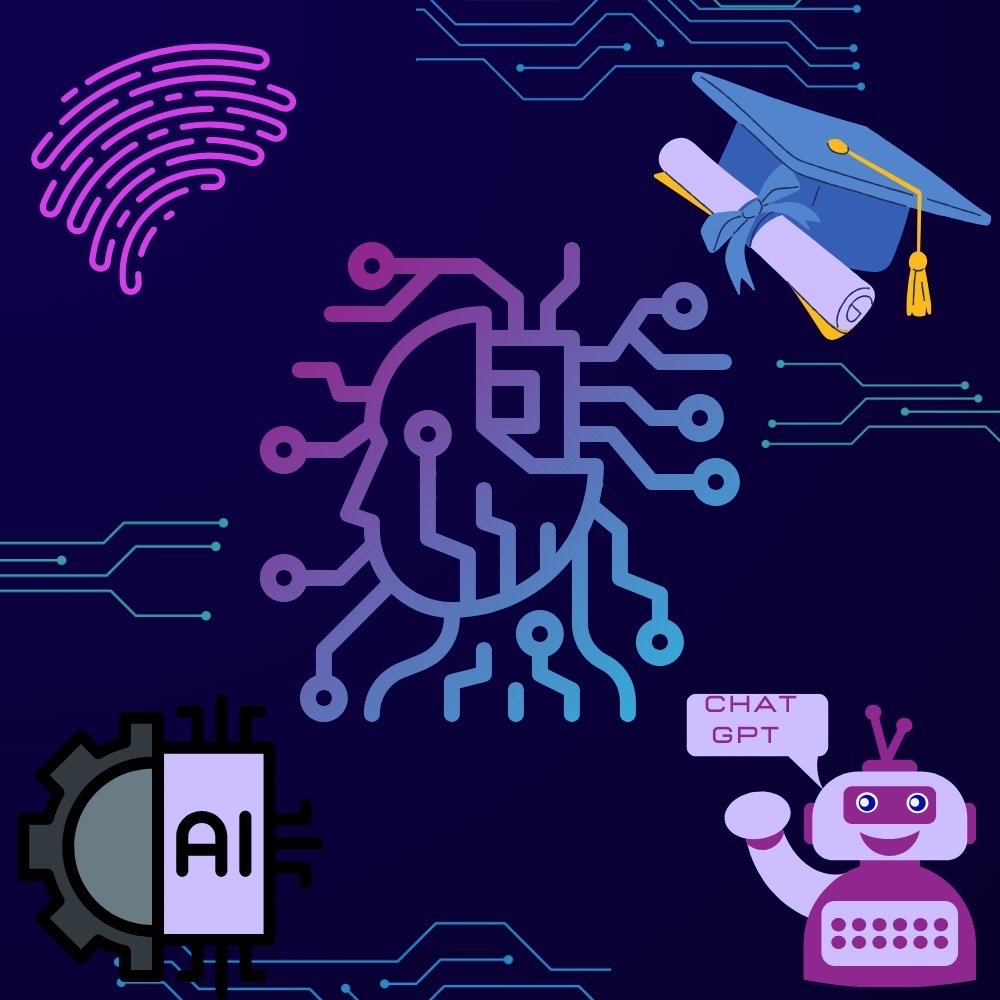The future is uncertain, and we cannot predict what will happen. In the digital age, personal devices make the access and the transfer of information almost instantaneous. This is currently impacting the way students are educated and will do so even more in the future. Not considering these changes could lead to losing out on jobs, income, and opportunities in the future. As our lives continue to be framed by technology, it is important not to get left behind. Technological advancements present both potential peril and opportunity. This is because education and its future are not just dependent on technology itself but also on those who use it. Here are the top trends to keep up to date with concerning the future of education.
ChatGPT – Chat Generative Pre-trained Transformer
ChatGPT is widely accepted in a variety of fields, including education. Its uses are unrivaled. Students can now learn theories and generate examples in a multitude of languages. In comparison to a Google search. ChatGPT can provide explanations with visual examples and direct answers. In addition to this, The AI-powered bot can grade essays and even give feedback for improvement. Some believe this may cause a shift towards the need for fewer professors and teachers. The likelihood is that they will both work in tandem to create a better workflow. In the future, it will make teachers more powerful with better resources for student-centered learning. To get started with ChatGPT as an educator, one would start by asking questions about lesson plan ideas and activities for topics. The more ChatGPT is used, the better you will get at giving it prompts. In the long term, it can reduce workload and help educators make the most of their time.
AI – Artificial Intelligence
In the future, education could be completely AI-driven. This may seem scary but in reality, it will lead to more people becoming lifelong learners. The self-paced personalized capabilities of AI. Will give more people the opportunity to gain credentials from all over the globe from the comfort of their homes. Currently, there are a variety of AI-powered apps which can be used to benefit both students and teachers. Apps like Top Hat, Education Co-pilot, and Gradescope are used to create lesson plans and grade student work. Student learning apps like Doodle, Century Tech, and MATHia allow students to work through subject content with personalized pathways driven by AI. As AI continues to improve the possibilities are endless. The best way to get accustomed to AI-powered apps is to use them in the classroom. This allows both students and educators to understand how AI can be used and administered. With lots of AI-powered apps using gamification to make learning fun. It ensures users improve their competency the more they are used. This gives those using AI in the classroom the chance to keep up to date with AI advances. This level of experience will be extremely important as AI is further incorporated into education.

Education And Job Opportunities
As the world evolves, new jobs appear, and jobs of old disappear at an alarming rate. As we move through the digital age, there is a new age upon us. This is commonly referred to as the experience age. We now not only choose what information we consume but the way we want to consume it. With virtual reality and an increase in personalized digital experiences, how can education adequately prepare students for the future? While the need to ensure students leave school with suitable digital skills is a necessity. The one thing that will always remain and be essential for improving job opportunities is soft skills. With the recent pandemic and transition into fully remote work, the soft skills needed in a traditional work environment have been hindered. Soft skills help people work well with others and complement technical ability. With more attention being paid to soft skills by employers, education in the future will see a rise in more dedicated soft skills classes and courses. Focusing on communication, collaboration, and problem-solving skills from a young age will help students when transitioning into adulthood. To continually improve your soft skills, you should try to work with those who communicate well, are generally solution-based, and enjoy working with others. Seeing these skills modeled will help you apply them to your own situations successfully.
With the future of education forever changing and innovating, keeping up to date with artificial intelligence, technology, and soft skills will give you the peace of mind to adapt and be ahead of what is to come. Those with competent digital skills and personal attributes that enable them to interact effectively with others will always thrive. As we step into an unknown age of education, ensure that person is you.
References:
- Artificial Intelligence and education: A critical view through the lens … Accessed January 22, 2024. https://rm.coe.int/artificial-intelligence-and-education-post-conference-summary/1680aae327.
- Liu, Ming, Yiling Ren, Lucy Michael Nyagoga, Francis Stonier, Zhongming Wu, and Liang Yu. “Future of Education in the Era of Generative Artificial Intelligence: Consensus among Chinese Scholars on Applications of Chatgpt in Schools.” Future in Educational Research 1, no. 1 (2023): 72–101. https://doi.org/10.1002/fer3.10.
- McDiarmid, G. Williamson, and Yong Zhao (赵勇). “Time to Rethink: Educating for a Technology-Transformed World.” ECNU Review of Education 6, no. 2 (2022): 189–214. https://doi.org/10.1177/20965311221076493.
- Varghese, Sangeeth. “Future of Learning and Education.” Future of Business and Finance, 2023, 197–215. https://doi.org/10.1007/978-3-031-36382-5_16.
- Grassini, Simone. “Shaping the Future of Education: Exploring the Potential and Consequences of AI and CHATGPT in Educational Settings.” MDPI, July 7, 2023. https://www.mdpi.com/2227-7102/13/7/692.
- The Future of Education and skills – OECD. Accessed January 22, 2024. https://www.oecd.org/education/2030/E2030%20Position%20Paper%20(05.04.2018).pdf.
- Escotet, Miguel Ángel. “The Optimistic Future of Artificial Intelligence in Higher Education.” PROSPECTS, 2023. https://doi.org/10.1007/s11125-023-09642-z.






















